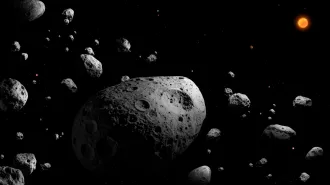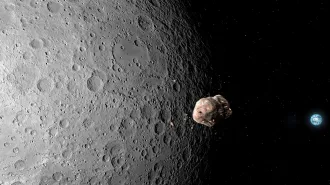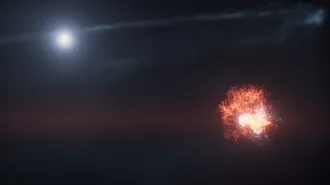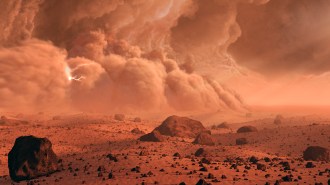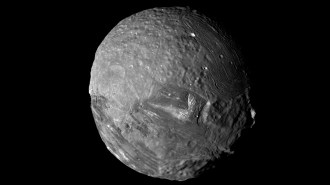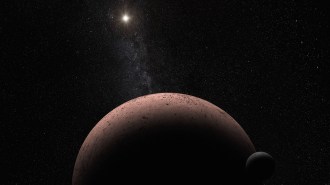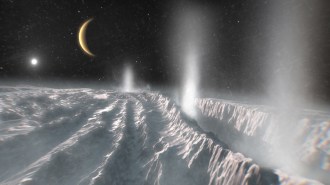Here’s another strike against Venus having copious lightning
Electromagnetic disturbances in its atmosphere were generated by another energy source
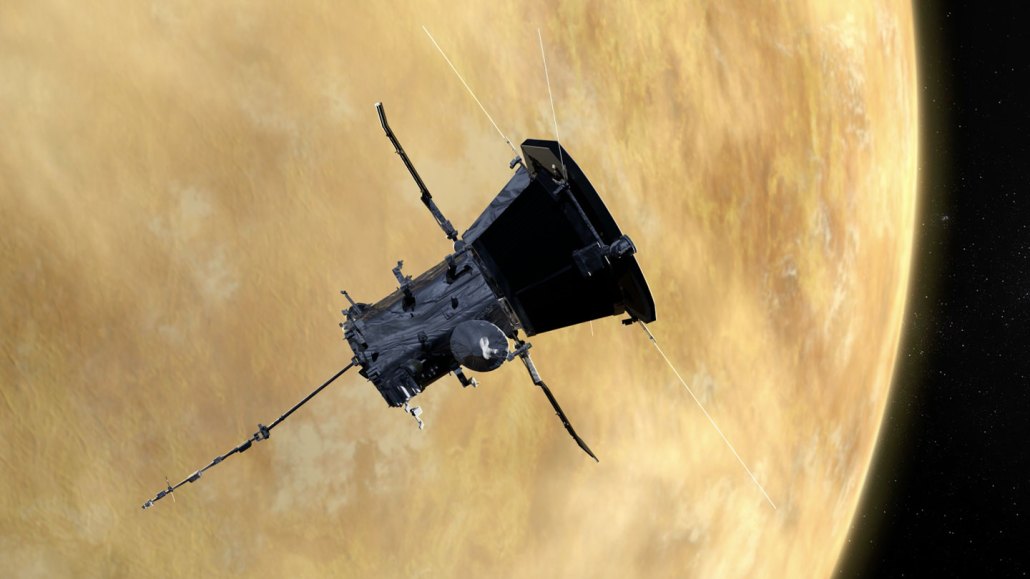
Marked by quick frequency changes from high to low, whistler waves detected in the atmosphere of Venus by the Parker Solar Probe (illustrated here) during a flyby in 2021 weren’t triggered by lightning, a new study suggests.
Steve Gribben/Johns Hopkins APL/NASA
